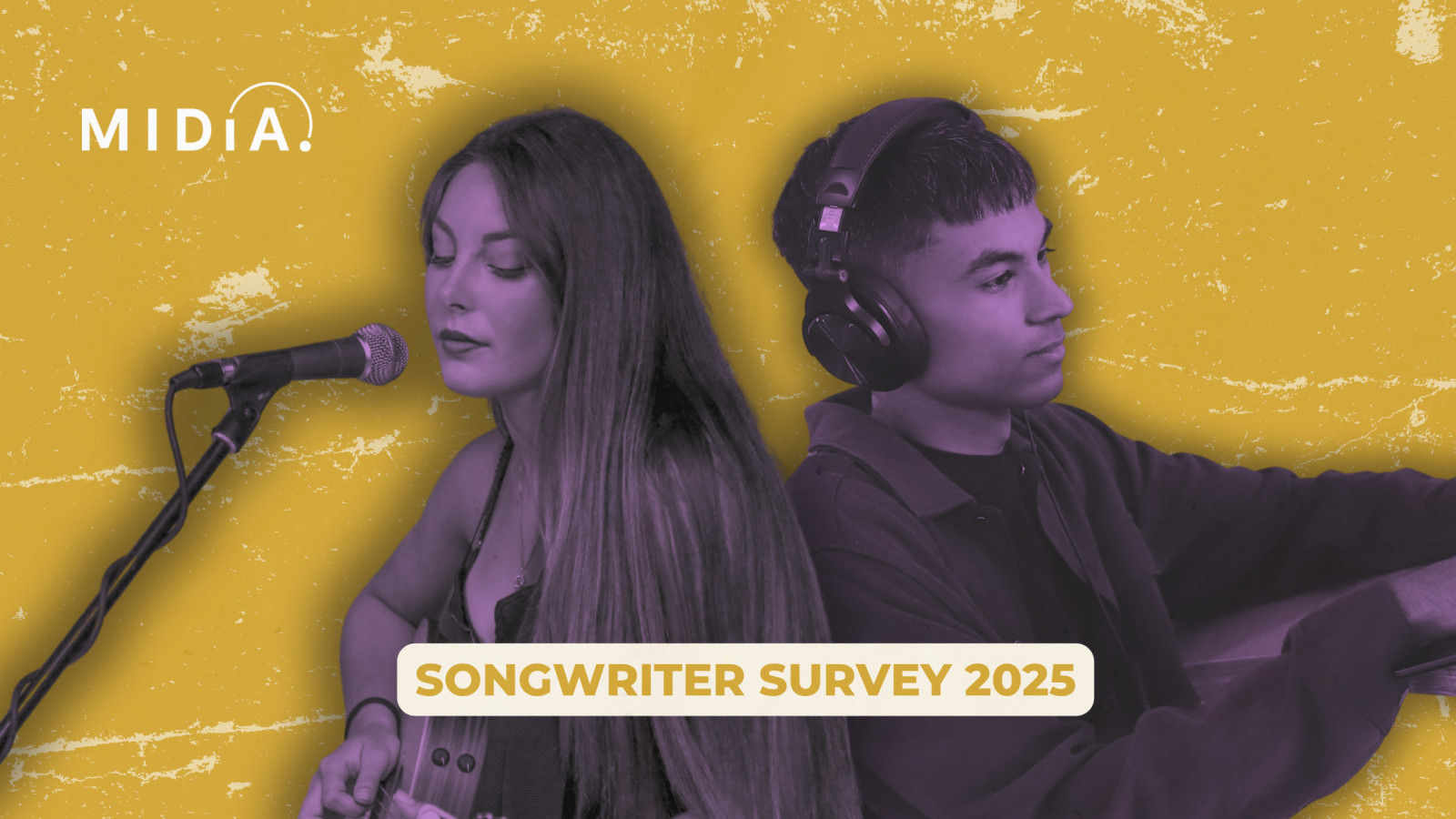The songwriter’s role is shifting: here’s what the data shows

Photo: Nick Karvounis

London, 10 July 2025 – The digital era has transformed every part of the music industry, but perhaps no role has been more quietly upended than that of the songwriter. Unlike recording artists, songwriters have long lacked the fallback revenue streams of touring or merchandise, while their share of streaming royalties remains smaller and fragmented across collaborators. Yet, a new generation of songwriters is emerging, refusing to be sidelined, and taking on new roles, with the “pure” songwriter increasingly rare.
According to MIDiA Research's second annual songwriter report, based on a global survey of 776 songwriters (up 467 from 2024’s survey) and six detailed interviews, modern songwriters are more diverse in scope and ambition than ever before.
In the album era, every contributor benefited from a sale, regardless of which track they worked on. In contrast, today’s streaming environment compensates only the played track, and revenue is often shared among multiple creators. Publishing earns a smaller share of streaming royalties than the recorded music side, and in the US, mechanical royalty rates are set by statute. Even among songwriters affiliated with collection agencies, many report missing income due to administrative complexity or a lack of awareness about rights and processes.
Survey data shows that many songwriters are now working across a wider set of activities. Many are using social media to build visibility, while others are pursuing performance or production. Platforms such as SoundBetter and Fiverr have created opportunities to offer songwriting services as works-for-hire, enabling new, upfront revenue models and workflows that bypass the traditional royalties system.
Among the report’s standout findings:
Roughly one in five songwriters say building a social media brand is among their top goals for this year, with Instagram the most popular platform for posting – reflecting more songwriters coming out from behind the curtain
Even among songwriters who are signed up to the appropriate collection agencies, most say they struggle to earn meaningful income. Yet the majority of songwriters are failing to maximise their royalty revenue in the first place by foregoing membership. For example, 61% of songwriters are not signed up to a mechanical rights organisation (MRO)
Featured Report
Splice x MIDiA Sounds of 2026 House on the rise
We zoom in on the trends and microtrends driven by the music industry’s biggest fans and most influential tastemakers: creators. Turn page after page of trends unfolding in real-time and see how Splice’s dataset is the barometer for the state of music today.
Find out more…Songwriters who are members of creator marketplaces (e.g., SoundBetter, Fiverr) earn more songwriting income, release more music, and are more likely to have seen their income rise in 2024 than the average songwriter
Most songwriters have a somewhat negative opinion about posting on social media for their careers – yet just over one-third feel it is important to do. They may be right: Songwriters who post more on social tend to release more music, and earn more income, than the average
For many, success is no longer defined by awards or hits. Instead, achieving creative fulfilment and earning a living (63% and 48%, respectively) top the list.
A common theme in interviews was the sense that the industry does not always recognise the value of songwriting. The report suggests that without better support and attribution, the sustainability of the songwriting pipeline is at risk. Areas of improvement include education around royalties, and addressing practices such as non-writing contributors receiving publishing shares.
As definitions of success and career structure continue to evolve, many songwriters are shaping careers that reflect their strengths and priorities, from negotiating upfront fees to building new, non-royalty-based revenue streams. As audiences, platforms and creators change, so too does the role of the songwriter.
“Similar to the trend MIDiA’s bifurcation theory has identified among artists, today’s songwriters have moved on from realising that the current business model does not work from them – and begun the work of building their own. The songwriters we surveyed and interviewed reflect a wide range of new business structures, many existing outside of traditional rights frameworks, with creator marketplaces and social platforms playing a growing role.”–Tatiana Cirisano, VP of Music Strategy at MIDiA Research
MIDiA Research is the global leading authority in music, the creator economy, and cross-entertainment. Our subscriptions, data tools, and strategy consulting bring clarity to complex industries by providing support and expertise. Our trusted data and powerful insights help make confident and impactful decisions. By leveraging multi-country consumer data, forecasts, market shares, and the insights from our creator panel, we empower clients to think differently, revealing unique solutions they did not even know existed.
With our deep understanding of both the business and culture of entertainment, we work with entertainment companies to navigate tough industry challenges. Driven by a passion for discovering new knowledge, insights, and solutions, our team nurtures creativity and innovation to consistently deliver dependable results.

The discussion around this post has not yet got started, be the first to add an opinion.